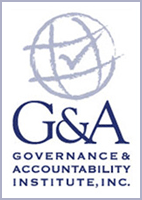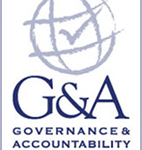
In the sixth annual monitoring and analysis of S&P 500 Index® company sustainability reporting, just completed by the Governance & Accountability Institute research team, the findings are that eighty-two percent (82%) of the companies included in this important investment benchmark published a sustainability or corporate responsibility report in the year 2016. This means a a four-fold increase from 2011.
The S&P Index is one of the most widely-followed barometers of the US economy, and conditions for large-cap public companies in the capital markets.
To put this in context, in charting prior years reporting, G&A found that:
- in the year 2011, just under 20% of S&P 500 companies had reported on their sustainability, corporate social responsibility, ESG performance and related topics & issues;
- in 2012, 53% (for the first time a majority) of S&P 500 companies were reporting;
- by 2013, 72% were reporting — that is 7-out-of-10 of all companies in the popular benchmark;
- in 2014, 75% of the S&P 500 were publishing reports;
- in 2015, 81% of the total companies were reporting;
- in 2016, 82% signals a steady embrace by large-cap companies of sustainability reporting.
As we entered the year 2017, just 18% of the S&P 500 were not publishing sustainability reports. The practice of reporting by the 500 companies is holding steady with minor increases year-after-year. The chart below represents the trends of S&P 500 sustainability reporting over the last six years:

Comments
Louis Coppola, EVP & Co-Founder of G&A Institute, who designs and coordinates the annual analysis, notes: “Year after year we continue to see that corporations are reporting on their ESG performance and related issues. We also see that there are some companies that continue to ignore the growing demands of their stakeholders and shareholders.
“However, the pressure is on! While searching for sustainability information on the non-reporters, more often than not, the first result on Google was an investor proxy resolution requesting for the company to start reporting on its management of ESG issues. These non-reporting companies are feeling the pressure from other stakeholders such as employees and customers as well.”
“As reporting standard setters and frameworks continue to evolve rapidly, leading reporters are continuously working to integrate the latest concepts into their strategy making and reporting. These leaders are seeing dramatic benefits from their efforts and are also increasingly engaging with investors to help make ESG data more strategically useful for decision-making by both company management, stakeholders and investors.”
Hank Boerner, Chairman & Co-Founder of the Institute, observed: “As we continue to see this steady level in US corporate sustainability and responsibility reporting, we are wondering what the thinking is in the non-reporting enterprises. These companies are now clearly laggards in this important peer group (the S&P 500), which is a very important benchmark for institutional investors. Are these companies not recognizing the significant range of benefits that accrue to their more sustainable peers?
“Do they not understand the rising expectations of stakeholders seeking much more comprehensive information about their company’s ESG performance? At the least, the companies seem to be firmly resistant to the demands of shareholders for more information about their ESG policies and performance.”
The Diminishing Missing Among US Corporate Sustainability Reporters
This chart presents the number of companies from the sectors in our annual S&P 500 study that are choosing not to report on their sustainability opportunities, risks, strategies, actions, programs and achievements implying no focus on sustainability with comparisons from 2014 through 2016.




